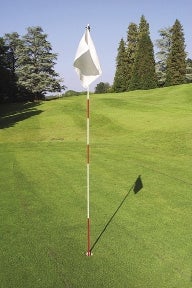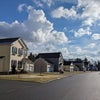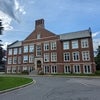After fiscal improvements, tough winter, golf facilities stay the course

After the Great Recession struck in 2007, fewer golfers took their clubs out for a day on the links. After all, being the luxury it is, if you're out of work and you have to pay the mortgage and put food on the table, golf drifts downward on the list of priorities.
“Golf is a major contributor to the economy — many people don't realize how big a business it is,” said David Frem, general manager of Cyprian Keyes Golf Club in Boylston. “In the United States, golf contributes $68.8 billion and 2 million jobs to the economy. In Massachusetts, the golf economy has (a) direct impact of $1.6 billion,” he said.
Golf course owners and operators would probably agree that to get a boost in business requires them to provide and promote good products and services, Frem said.
“The economic downturn forced many courses to become more efficient, spend money more wisely, and pay more attention to their business,” said Frem.
But last year, things appeared to turn around for golf in Central Massachusetts. Course managers in the region believe business will be even better this year.
“We are hoping that last year was the bottom in the golf economy cycle,” said Mike Hightower, course superintendent at Westborough Country Club.
Jeffrey Lawson, general manager at Marlborough Country Club, has the same outlook. “We anticipate a terrific year ahead,” he said. “With the improving economy and our (location), we expect 2014 to be a year of growth.”
Club managers wary of being too optimistic
“I generally enter each season anticipating a repeat of the season prior, and mange expenses in such a way so we aren't surprised by another drop,” said Kevin Sullivan, who owns Southborough's Stonybrook Golf Course. “If consumers feel pinched or less wealthy, it's the discretionary spending that tightens first.”
Golfers in Central Massachusetts may still be able to afford their leisure activity, but they may not be able to go out and play as often as they would like. So the state of the economy can also affect the number of rounds they play from season to season.
“That is where we and other golf courses see it: the reduction in rounds played,” Sullivan said. “People are still playing golf, eating at restaurants, etc., but doing less of it … They may still have cable (TV) but may have reduced their (service, or they may be) holding onto that four-year-old car for another year.”
Hightower hopes to see more — or at least not less — business this year when spring brings out the golfers.
Then ... there's the snow
But as the economy improves, weather — especially conditions the region has experience for most of the last three months — plays a factor in when golfers decide to start teeing off.
“We do feel the improving economy will have a positive impact, but there are other factors to consider,” said Stephanie Tor, manager at Berlin Country Club. “The biggest factor that will affect us this spring will really be inclement weather.”
Frem agrees. “I am optimistic for this year, despite the likely late start due to all the snow still on the ground,” he said. “(Last year) was not a good weather year for golfers, so combining that with a long winter, I think golfers are very excited to get the season started.”
Value adds
Tor said value is essential for her nine-hole executive course. “Our lower overhead allows us to maintain a lower price point,” she said. “A good value is always appealing.”
Marlborough, being a private course, hopes to see more golfers from among the general public. “MCC ... accommodates public play on Mondays and Tuesday. Public play continues to grow,” Lawson said.
Lawson said MCC has also extended its reach to junior golfers, women and couples. “Building programs that fit the interest and skill level of the golfer…will build interest,” he said.
Even with the economy in recovery mode, course owners and managers are nonetheless approaching the spring on a hopeful note.
“It's difficult to read the tea leaves as no one can predict the future, even the economist and politicians,” Sullivan said. “But I … do not anticipate much of a change this year.”









0 Comments